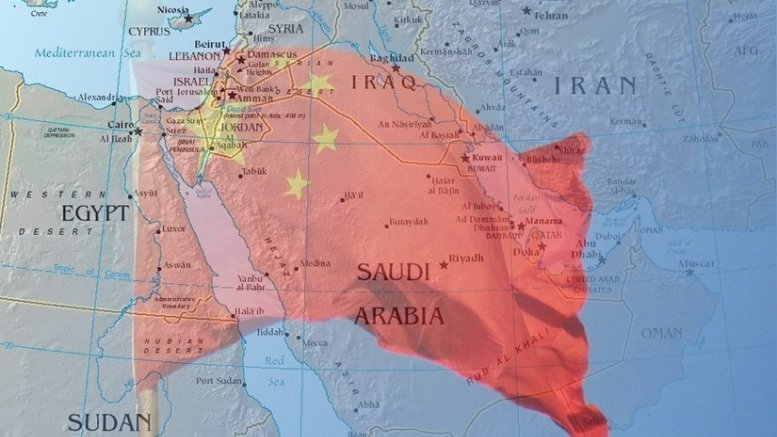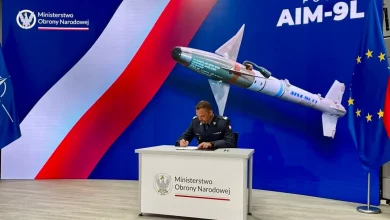Analysis: China’s rise in the Middle East

The indicators on the ground signal that we will hear more news about Beijing’s growing influence in the region
China brokered a historical agreement on March 10 that aims to restore the conflictual relations between Saudi Arabia and Iran. The trilateral joint statement was signed by Ali Shamkhani, secretary of the Supreme National Security Council of Iran, Saudi National Security Advisor Musaid bin Muhammed Al Aiban, and Chinese top diplomat Wang Yi, director of the Foreign Affairs Commission Office. Considering its influence in the region and international politics, this mediation effort and agreement is a diplomatic victory for China.
Although the China-brokered deal is a watershed development for Middle Eastern politics, it marks a significant development for the region, as it may bring the end of a long-standing enmity. Many other states such as Russia, Pakistan, Iraq, Qatar, Kuwait and Oman have attempted to mediate between the two countries, but all these efforts have failed. Only China has succeeded to end the longtime deadlock in Saudi-Iran relations.
The deal will impact several aspects of bilateral relations, regional balances and international politics. First, the agreement will contribute to bilateral relations. According to the agreement, the two countries have agreed to restore their bilateral relations, exchange ambassadors and initiate cooperation projects in different issue areas. It has not solved all problems between the two states. However, the diplomatic normalization between the two largest countries in the Gulf region will influence the geopolitical environment not only in the Gulf but also in the Middle East.
Despite many differences in their regional perspectives and their conflictual relations, Iran and Saudi Arabia have decided to improve their bilateral relations. Because their conflictual relationship has been mutually destructive. Both countries have been suffering from respective sectarian policies. China does not want the two countries to contradict one another; it does not want to take either side.
Impact on the region
Second, the deal will influence regional developments. Almost all regional countries have welcomed the deal since it will contribute to the political stability and economic development of the region. The Saudi-Iran deal can be considered as the continuation of Middle Eastern normalization. After the initiation of the normalization process in different dimensions such as intra-Gulf/Arab and Turkish-Gulf, the Iran-Gulf normalization process has gained pace.
Having full diplomatic relations is an essential step in promoting regional security in the Gulf and the Middle East. For example, they may reach a deal in the Yemeni civil war, a proxy war between the two countries. At least, the current agreement may freeze the conflict in Yemen. Iraq, a Shiite Arab country that is politically divided, will benefit positively from this normalization. The detente between Iran and Saudi Arabia will facilitate and accelerate the normalization between the Gulf states and Syria and Lebanon, the two states that are in the Iranian sphere of influence. Furthermore, the rapprochement between Tehran and Riyadh will decrease the antagonism between Sunni and Shiite Muslims, since the two countries have represented two clashing sectarian perspectives.
Most regional countries have been trying to diversify their foreign relations. For this reason, they try to improve their relations with different regional and global powers. Thus, they try to break their dependencies on certain global powers. Middle Eastern countries do not want to put all their eggs in one basket anymore since the global transition period requires small and middle powers to increase their flexibility in their foreign policies.
The rising voice
Third, this mediation has fostered Chinese relations with the regional actors. China is becoming an increasingly important player in the Middle East. Saudi Arabia has agreed to join the Shanghai Cooperation Organization (SCO) as a dialogue partner. This was also a clear indication of closer political ties with China. Iran has recently joined the organization as a full member. With this mediation, China has taken a significant step to develop diplomatic ties with the Gulf states. Until recently, Chinese relations with the Gulf were limited to economic relations. Now, it has been increasing its political and security relations with the regional states. This is just another indication of rising its voice in international politics.
The American factor
Fourth, the deal will influence U.S. relations with the regional actors. Although some analysts claim that the Saudi-Iran deal will not influence U.S.-Saudi relations, it will surely change American-Saudi relations in near future. The United States officials declared they support any efforts to de-escalate tension in the region.
They claimed that the de-escalation was in the interests of the U.S. since they do not want additional problems in the region that will keep it busy. However, the U.S. government uses neither deterrence nor diplomacy to make contributions to regional stability. Some other powers have entered the region acting as balancer actors. That is, China has stolen the traditional balancer role of the U.S., which has been trying to pile up its military assets in East Asia.
The United States is no longer seen as a reliable security partner in the Middle East. Restoring relations with Iran may decrease the vulnerability of Saudi security. The Saudis have informed U.S. officials about the deal process. However, the U.S. was not part of the deal. It is not easy to bypass its traditional protector in its serious engagements.
It’s clear that the traditional U.S. security umbrella doesn’t make much sense anymore, and Riyadh has to decrease real or potential threats directed against the Saudi kingdom. For Iran, the normalization will break out its regional and international isolation. The main Chinese strategy toward the Middle East is to come to the region as an alternative power to the West.
The economic dimension
Fifth, there is a strong economic dimension to the deal. China attaches great importance to the Middle East for economic reasons. As one of the fastest-growing economies in the world, China largely depends on Middle Eastern oil. Tehran and Riyadh are China’s major oil suppliers and two large trade partners that benefit from China’s need for energy resources. Because of the U.S. imposed economic sanctions, Iran has been prioritizing its economic relations with China, which is seen as an alternative to the U.S. by the Gulf states.
Saudi Aramco has announced that it has increased its multibillion-dollar investments in China. Recently, it finalized a planned joint venture in China and acquired a stake in a private petrochemical group. The Saudi company has purchased 10% of China’s Rongsheng Petrochemical company. In addition, it will build a new refinery and petrochemical complex with a capacity of 300,000 barrels per day in Panjin city in northeastern China.
Source: DailySabah





